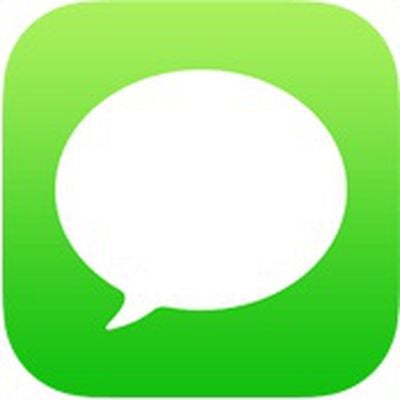Apple Says iMessage Interception Would Require Re-Engineering Systems, Has No Interest in Doing So
 Yesterday, researchers made a presentation at the Hack in the Box conference arguing that Apple's iMessage system could theoretically allow Apple or another party to intercept the encrypted messages. The concern stems in part from Apple's use of a private server for storing users' public keys used to encrypt messages, meaning that senders have no way of knowing whether a potentially false key has been inserted in order to intercept messages intended for a different recipient.
Yesterday, researchers made a presentation at the Hack in the Box conference arguing that Apple's iMessage system could theoretically allow Apple or another party to intercept the encrypted messages. The concern stems in part from Apple's use of a private server for storing users' public keys used to encrypt messages, meaning that senders have no way of knowing whether a potentially false key has been inserted in order to intercept messages intended for a different recipient.
In a statement to AllThingsD, Apple once again denies that it can read iMessages, noting that it would require the service's systems to be re-engineered and that the company has no interest in doing so.
Apple says that QuarksLab’s theory is just that — a theory, and one that would require a rearchitecting of iMessage for it ever to be a threat in the real world.
“iMessage is not architected to allow Apple to read messages,” said Apple spokeswoman Trudy Muller said in a statement to AllThingsD. “The research discussed theoretical vulnerabilities that would require Apple to re-engineer the iMessage system to exploit it, and Apple has no plans or intentions to do so.”
Apple's statement does not actually refute the original claim, simply confirming that as the service is currently configured it is impossible for Apple to intercept iMessages. The researchers' argument rests on the observation that changes could be made to Apple's systems to allow for iMessages to be intercepted without users being aware of the changes.
The result is that Apple is arguing users should trust that the company has no interest in making such changes, and if users take Apple at its word, the researchers' concerns remain merely theoretical. But some users may remained concerned that Apple could be quietly compelled to make changes by government security agencies, compromising Apple's touted "secure end-to-end encryption" for iMessage.
Popular Stories
While the iOS 26.3 Release Candidate is now available ahead of a public release, the first iOS 26.4 beta is likely still at least a week away. Following beta testing, iOS 26.4 will likely be released to the general public in March or April.
Below, we have recapped known or rumored iOS 26.3 and iOS 26.4 features so far.
iOS 26.3
iPhone to Android Transfer Tool
iOS 26.3 makes it easier...
Apple recently acquired Israeli startup Q.ai for close to $2 billion, according to Financial Times sources. That would make this Apple's second-biggest acquisition ever, after it paid $3 billion for the popular headphone maker Beats in 2014.
This is also the largest known Apple acquisition since the company purchased Intel's smartphone modem business and patents for $1 billion in 2019....
The calendar has turned to February, and a new report indicates that Apple's next product launch is "imminent," in the form of new MacBook Pro models.
"All signs point to an imminent launch of next-generation MacBook Pros that retain the current form factor but deliver faster chips," Bloomberg's Mark Gurman said on Sunday. "I'm told the new models — code-named J714 and J716 — are slated...
In 2022, Apple introduced a new Apple Home architecture that is "more reliable and efficient," and the deadline to upgrade and avoid issues is fast approaching.
In an email this week, Apple gave customers a final reminder to upgrade their Home app by February 10, 2026. Apple says users who do not upgrade may experience issues with accessories and automations, or lose access to their smart...
Last year, Apple launched CarPlay Ultra, the long-awaited next-generation version of its CarPlay software system for vehicles. Nearly nine months later, CarPlay Ultra is still limited to Aston Martin's latest luxury vehicles, but that should change fairly soon.
In May 2025, Apple said many other vehicle brands planned to offer CarPlay Ultra, including Hyundai, Kia, and Genesis.
In his Powe...
![]() Yesterday, researchers made a presentation at the Hack in the Box conference arguing that Apple's iMessage system could theoretically allow Apple or another party to intercept the encrypted messages. The concern stems in part from Apple's use of a private server for storing users' public keys used to encrypt messages, meaning that senders have no way of knowing whether a potentially false key has been inserted in order to intercept messages intended for a different recipient.
Yesterday, researchers made a presentation at the Hack in the Box conference arguing that Apple's iMessage system could theoretically allow Apple or another party to intercept the encrypted messages. The concern stems in part from Apple's use of a private server for storing users' public keys used to encrypt messages, meaning that senders have no way of knowing whether a potentially false key has been inserted in order to intercept messages intended for a different recipient.



















